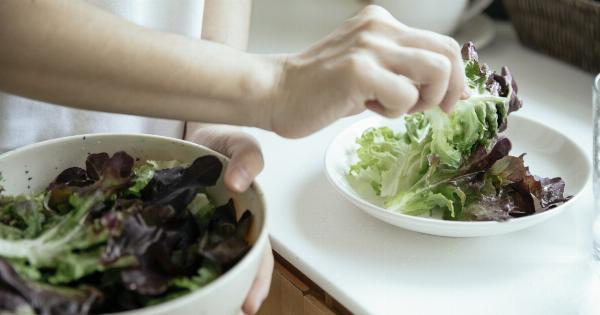Kidney cancer is a type of cancer that starts in the kidney cells. One of the leading causes of kidney cancer is poor diet. Eating certain foods and drinks can increase one’s risk of developing kidney cancer.
In this article, we look at some of the eating habits that can increase your chances of kidney cancer.
Sugar and Refined Carbohydrates
Consuming a lot of sugar and refined carbohydrates, such as white bread, pasta, and snack foods, can increase your risk of kidney cancer.
The body digests these refined carbs quickly, which causes a sharp rise in blood sugar levels and puts increased stress on your kidneys. Over time, this can cause damage to your kidneys and increase your risk of developing kidney cancer.
Red and Processed Meats
Eating red and processed meats, such as steak, burgers, sausage, and bacon, has been linked to an increased risk of kidney cancer. These meats contain high levels of saturated fats and chemicals that can damage DNA and increase the risk of cancer.
Try to limit your intake of red and processed meats and opt for leaner proteins like chicken, fish, and legumes.
Fried and Grilled Foods
Fried and grilled foods contain high amounts of acrylamide, a chemical that forms when certain foods are cooked at high temperatures. Acrylamide has been linked to an increased risk of kidney cancer.
Avoid deep-fried foods and opt for baked, steamed, or boiled options instead.
Salt and Sodium
Eating a lot of salt and sodium can increase your blood pressure and damage your kidneys, which increases your risk of kidney cancer. Avoid adding extra salt to your meals and choose low-sodium options when available.
Also, be aware that many packaged and processed foods contain added sodium, so read labels carefully.
Sweetened Beverages
Sugar-sweetened beverages, such as soda, sports drinks, and energy drinks, can increase your risk of kidney cancer. These drinks contain a lot of sugar and have been linked to weight gain, which can also increase your risk of cancer.
Drink water or unsweetened tea instead.
Canned Foods
Canned foods are often high in sodium and contain preservatives that can increase your risk of kidney cancer. Choose fresh or frozen fruits and vegetables instead of canned ones.
If you do choose canned foods, look for low-sodium options and rinse them thoroughly before eating.
Alcohol
Drinking alcohol can increase your risk of kidney cancer. Alcohol puts stress on your kidneys and can damage your DNA, which can lead to cancer. If you drink alcohol, do so in moderation.
This means no more than one drink per day for women and no more than two drinks per day for men.
Vitamin Supplements
Taking high doses of vitamin supplements can increase your risk of kidney cancer. This is especially true for vitamin E and beta-carotene supplements. Instead, try to get your vitamins from a healthy diet that includes plenty of fruits and vegetables.
Dairy Products
Dairy products, such as milk, cheese, and yogurt, contain calcium, which can be beneficial for your bones. However, consuming too much calcium can increase your risk of kidney cancer.
Try to limit your intake of dairy products and choose low-fat or non-fat options when possible.
Conclusion
Eating a healthy diet is important for maintaining good health and reducing your risk of cancer. When it comes to kidney cancer, avoiding certain foods and drinks can help lower your risk.
Limit your intake of sugar, red and processed meats, fried and grilled foods, salt, sweetened beverages, canned foods, alcohol, vitamin supplements, and dairy products. Instead, focus on a diet that is rich in fruits, vegetables, whole grains, and lean proteins. If you have any concerns about your diet and your risk of kidney cancer, talk to your doctor or a registered dietitian.


























